Metro Des Moines teems with sports facilities. Should cities use public money to compete?
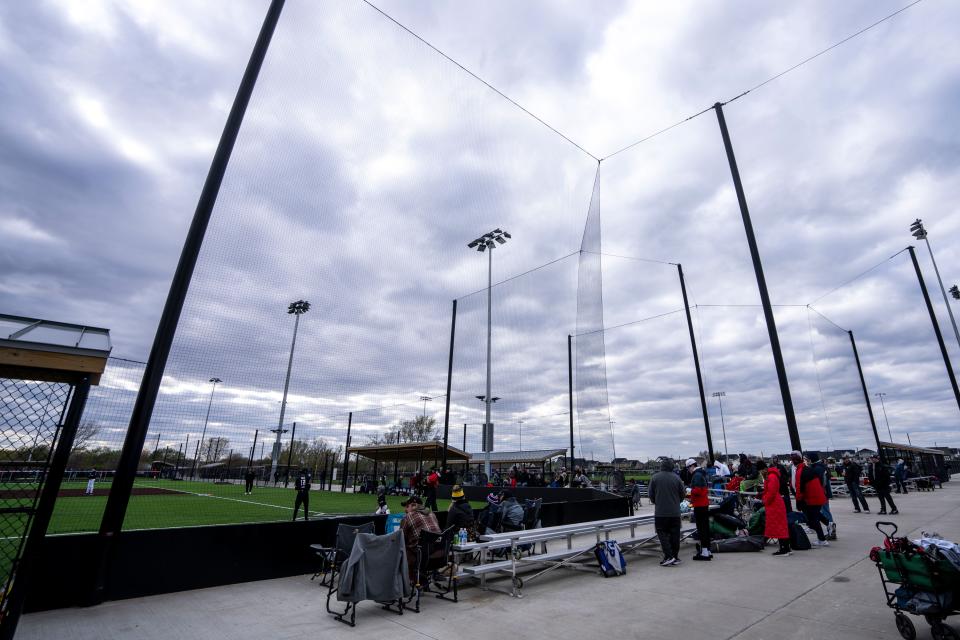
When a prominent Iowa developer announced plans four years ago to build in Grimes what was dubbed the “Midwest’s largest” privately developed youth sports facility, he predicted that 1.5 million visitors annually would descend on the fast-growing city of nearly 17,000 straddling Polk and Dallas counties.
But as GrimesPlex nears a grand opening and youth sports are in full swing, the optimistic projections surrounding the ambitious facility compete with a growing number of other options for young athletes. The city two years ago took over the now $31 million development of the complex, and projections of visitors were reduced to 1 million. That leaves the city gambling a pile of public money in a regional race to drive new economic activity through sports.
Consider:
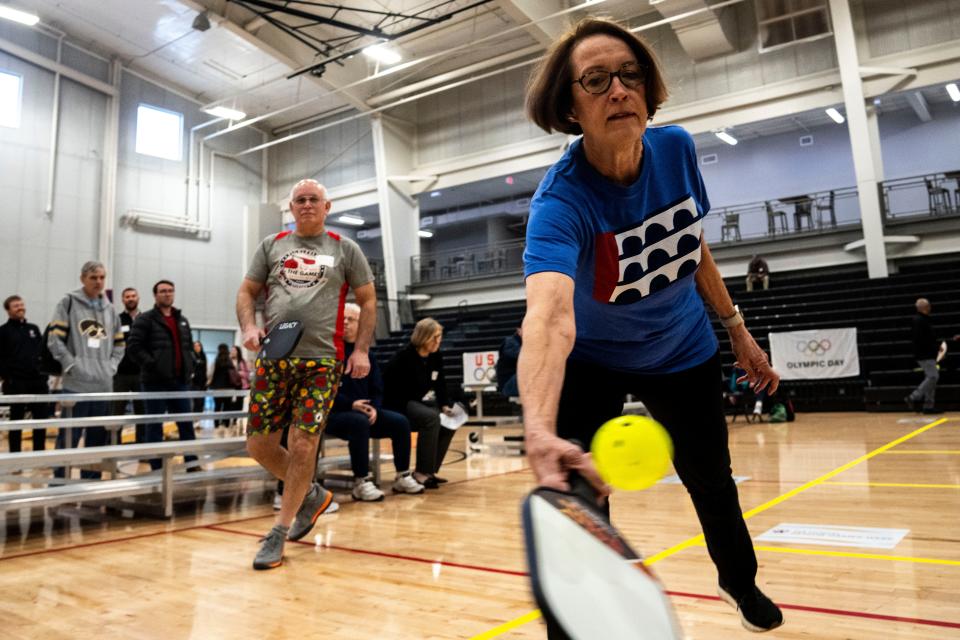
West Des Moines in 2021 opened its all-season, $60 million MidAmerican Energy Co. RecPlex with two NHL-size ice rinks, a full-sized indoor soccer pitch and four basketball courts. Ryan Penning, the city's park and recreation director, recently confirmed plans to add a third sheet of ice.
Penning said the third rink will make room for events like the National Senior Games in 2025 and the Junior Olympic Games, which the city hosted last summer. The city will be looking for public-private financing to make it happen.
"The demand is there. I only think youth sports is going to continue to grow," he said.
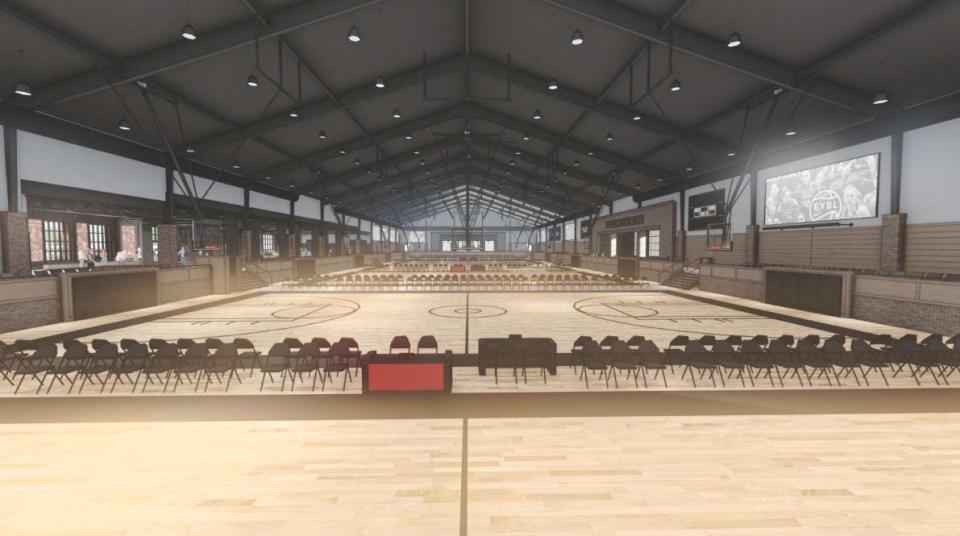
Waukee plans to welcome in 2025 the Kettlestone Central Sports Complex, billed as a national basketball destination, with 12 full-sized indoor basketball courts and an outdoor court with stadium-style seating in a 160-acre development east of Grand Prairie Parkway. Hatched by developer Dickson Jensen, creator of All Iowa Attack, the statewide youth basketball program that nurtured Caitlin Clark, the facility is at the center of a $350 million private development that also includes more than 1,000 residential units and restaurants, bars, shops and hotels.
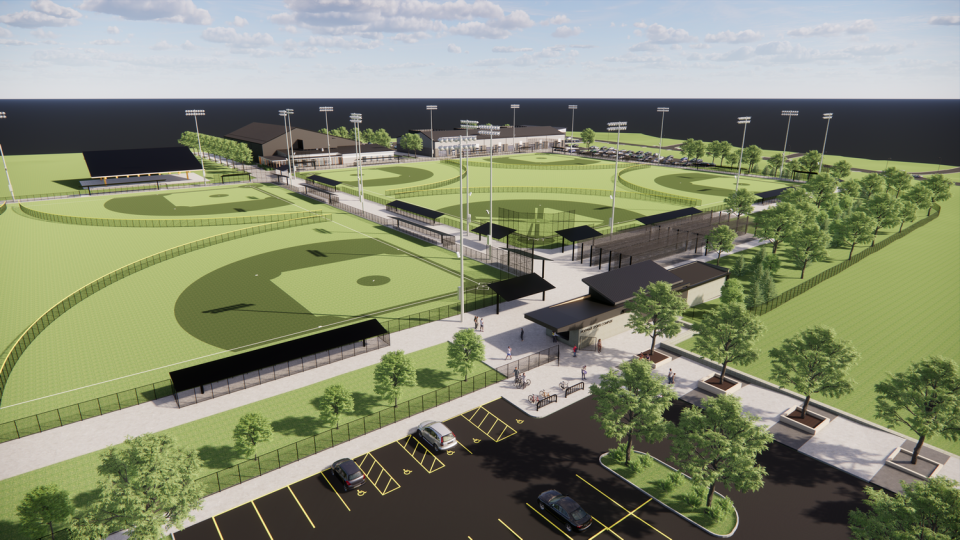
Norwalk has its new $30 million Greg Young Auto Sports Campus east of Highway 28, featuring turf fields and indoor courts as the centerpiece of the 70-acre, $300 million Norwalk Central development.
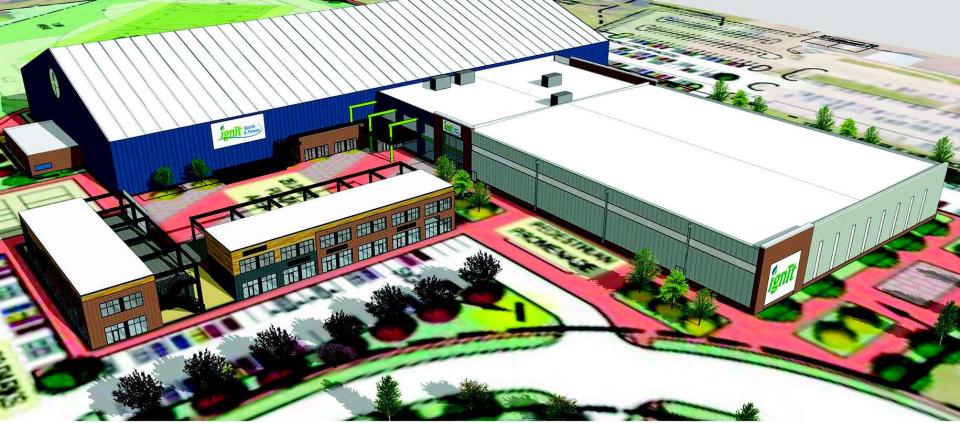
Johnston last September celebrated the groundbreaking for the Ignit Sports and Recreation complexon the west side of Merle Hay Road north of its interchange with Interstate 80/35. With an indoor track, full-size indoor soccer field, fitness areas, eight basketball/volleyball courts and outdoor fields, it is slated to open late this year and is projected, like GrimesPlex, to draw 1 million visitors annually.
More: Johnston breaks ground on Ignit sports complex, expected to be big draw on Merle Hay Road
Ames, Des Moines, Iowa City, Newton and Urbandale also are among central Iowa cities ramping up sporting venues to compete for crowds, tournaments, hotel stays and retail and restaurant dollars.
Part of a larger 200-acre residential, hotel and retail development, GrimesPlex is projected to generate $11 million in direct spending in its first year and $16.1 million by its fifth, according to an economic impact study. The private investment became a public one in 2022 after developer Reza Kargarzadeh’s company gifted the 50-acre sports complex site ― and $12 million ― to the city of Grimes.
“He chose to do it after two years to focus more on the surrounding area, as the city is more of an expert in building parks and facilities,” said Whitney Tucker, the city’s communication manager.
In taking over the now-$31 million project, Grimes is betting the facility ― which includes 12 soccer and 18 baseball fields ― will create an explosion of economic activity in the heart of the city.
But because it is now under city ownership, the new facility won’t generate any new property taxes. Grimes also promised Kargarzadeh’s company $25 million in tax-increment financing revenue over 15 years if he completes development surrounding GrimesPlex by 2031. That means new property tax revenue generated by the surrounding development won’t be accessible to the city for 13 more years.
Across the country, developers, civic leaders and economic development cheerleaders all have championed projects aimed at tapping into the $19 billion economy surrounding youth sports. But Iowa's tourism department hasn't found an accurate way to measure Iowa's sports tourism industry yet, and critics argue that too much building can lead to cannibalization, failed projections and big losers ― especially when public money is involved.
In a race that involves everyone, doesn’t someone lose?
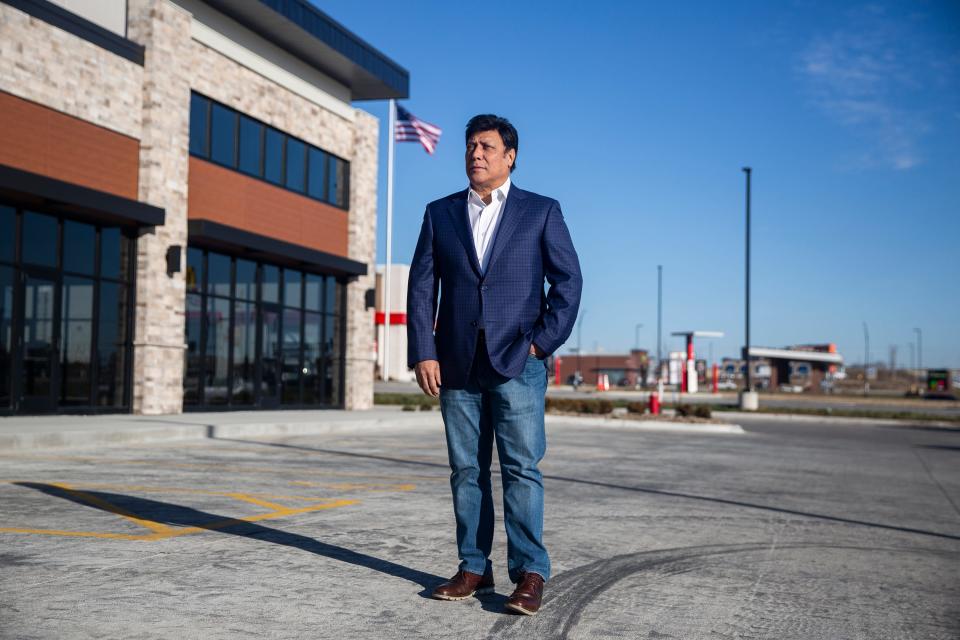
Nick Reggio, a bank employee who runs the 600-member Dallas Center-Grimes Youth Soccer Club, is among those who have questioned the public spending on GrimesPlex. He wonders who ultimately stands to benefit most from its construction: the city, Kargarzadeh, wealthier sports teams based outside Grimes or local youth.
Yes, he said, the CEO of Hope Development and Realty donated land and $12 million in 2022 so the city could finish what he started. But he said Kargarzadeh and his company also stand to benefit financially now that the tax-exempt complex is complete. The project, he said, also is nowhere near the largest facility of its kind in the Midwest, and wound up costing much more than originally projected.
“They swore zero tax dollars would go toward it, and their original estimate was $19 to $21 million,” he said ― about two-thirds of what was actually spent.
He questions whether the public investment in GrimesPlex was needed because the city already was growing rapidly without incentives.
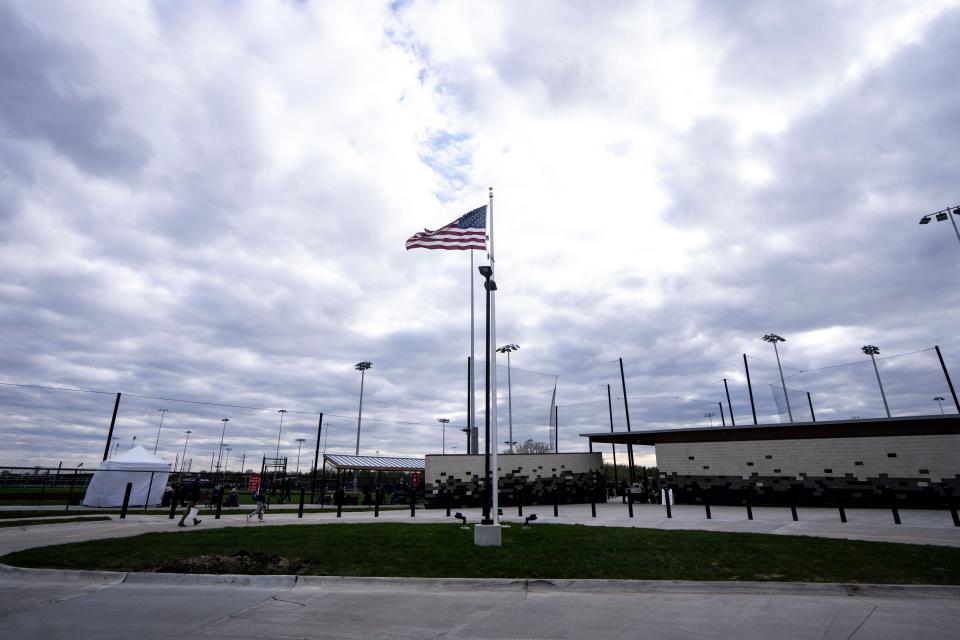
Reggio says he tried to sign up his club for practice space there, but GrimesPlex ultimately contracted with a direct competitor, Sporting Iowa, based in Des Moines. As often happens when new facilities are built, he said, GrimesPlex is drawing higher-dollar teams while other clubs are forced out.
He said his club continues to use beautifully maintained existing fields in Grimes, but members can’t play on wet turf. The new facility, he said, has synthetic fields.
“I’ve tried to sit back and appreciate what we have,” he said. “But it’s also like the new shiny toy you can’t play with.”
With the gift from Kargarzadeh and a smattering of other funding, like a $50,000 community betterment grant from Polk County, the city says it's covered the $31 million cost of the GrimesPlex project. The city spent $5 million and bonded for another $14 million to get it done. Tucker stressed payments on the debt will be covered by revenue generated by the complex, not new taxes.
The city's spending on GrimesPlex, which Grimes estimates to be worth $47 million, amounts to 41 cents on the dollar, Tucker said.
“Facilities of this level built in other communities, including MidAmerican Energy RecPlex in West Des Moines and Triumph Park in Waukee, have cost the taxpayers in those communities closer to 100 cents on the dollar,” she said in a statement. “This project brings immense value to our community at a fraction of the cost.”
With its first tournament at the end of March and weekend field practices that began this month, GrimesPlex is expected to be used mostly for local teams and parks and rec programs like PeeWee soccer, T-ball, youth hockey and adult slow-pitch softball, Tucker said.
“It is a priority for the City of Grimes to offer park and recreation programs at GrimesPlex so all young athletes in our community of every ability have a chance to enjoy the complex,” she said in a statement. “It is a very special opportunity for these very young athletes to experience a state-of-the-art turf facility, and facilities of this caliber typically are not available for park and rec programs.”
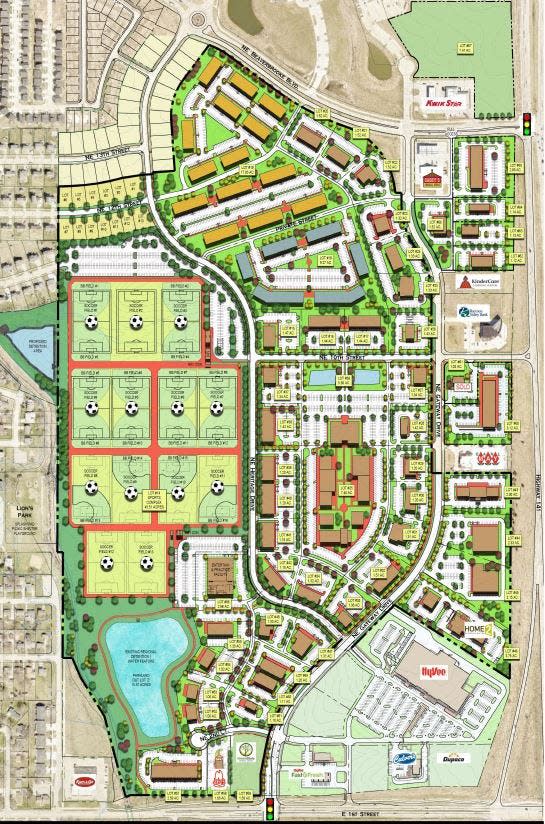
Meanwhile, the park, she said, already is attracting businesses to the area, including a Tru by Hilton hotel and restaurants that are set to start construction soon.
Dangling carrots in an already fast-growing city
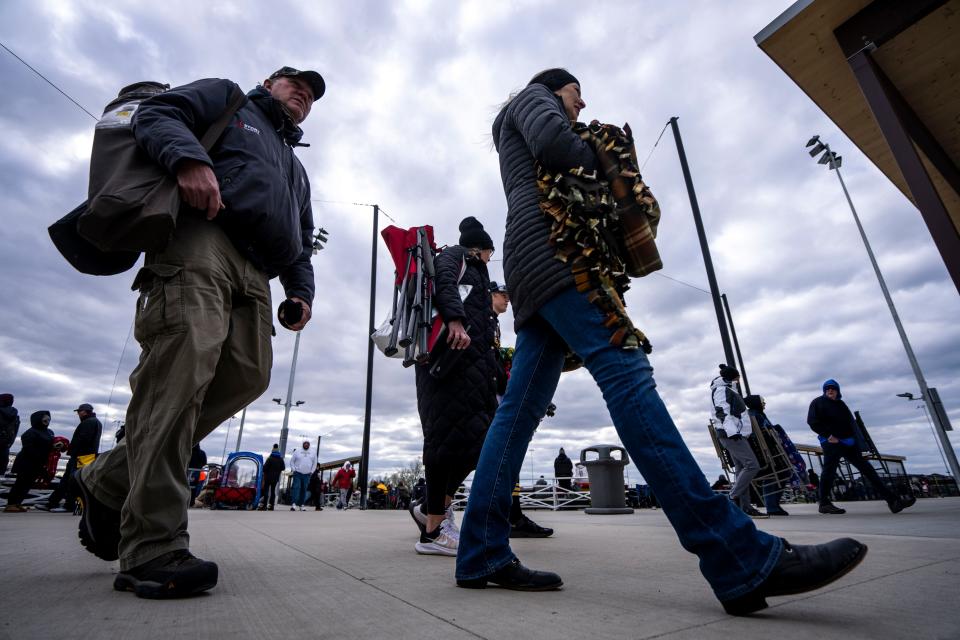
City officials are confident that with an annual operating budget of less than $900,000, the new complex will benefit not only Grimes, but the whole Des Moines metro, Tucker said.
But as with many professional sports arenas, revenue projections for youth complexes around the country have fallen short. Fields and facilities also deteriorate and depreciate ― costs seldom accounted for in rosy economic impact surveys.
While GrimesPlex undoubtedly will improve access to sporting amenities in one of the metro’s most-affluent communities, researchers have warned the ventures easily can become liabilities.
In some locales, cities or counties have been forced to take over private youth sports developments that fell short of developers' projections. Such is the case currently in the metro Kansas City suburb of Shawnee, Kansas, home to the Mid-America Sports Complex, now owned by Johnson County.
Jeff Stewart, executive director of the county's park and rec district, said the county financed through 10 years of debt a $40 million upgrade this year of 24 baseball/softball fields, concessions, warm-up spaces, parking and other amenities at Mid-America. "It's just beautiful, and it's been very well received," he said.
An upgrade at Mid-America West Sports Complex, also part of that project, is still in the design phase.
The decision to upgrade both complexes came after a study identified major capital improvements needed at several of the county's outdoor sports facilities, Stewart said. But the county board overseeing the district has only half the funding needed to finance all the projects now identified in its strategic plan.
"The economic impact of sports facilities is very real and very important" to attract local, regional and national sports, Stewart said, but communities need to be particularly cautious about the need to sustain and upgrade those facilities for years to come.
In the Indianapolis suburb of Westfield, home to a megasports complex called Grand Park, deteriorating conditions and increased competition also forced public and private investors to eventually up their game. Grand Park in December announced a 40-year, $300 million public-private deal to upgrade the massive facility, including the hiring of a private management company to try to attract more large sporting and entertainment events.
Penning, West Des Moines' parks and rec director, acknowledged the difficulty when different locales constantly compete against one another with new sporting facilities. But he said West Des Moines has carved out a niche with hockey in a metro with few skating options ― and that's paying off.
The RecPlex, he said, had 1 million visitors last year and generated $25.2 million in spending, according to numbers from the Greater Des Moines Partnership.
If it's a slam dunk, why no private investment?
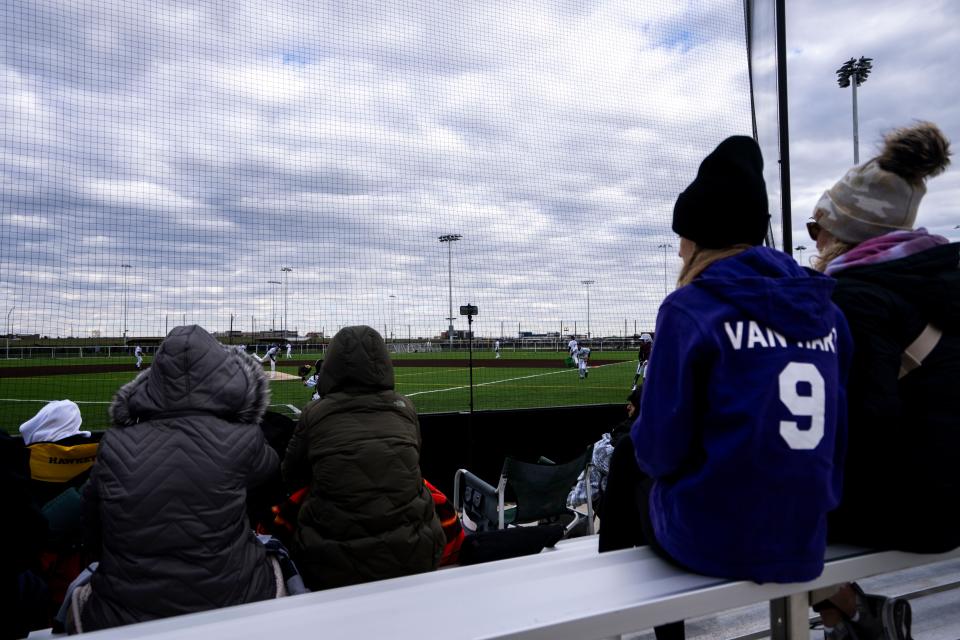
Michael Hicks, a Ball State University professor and director of the school’s Center for Business and Economic Research, asks if GrimesPlex was projected to generate so much revenue, why Kargarzadeh stepped away or other private investors didn’t step in. He also wonders why the city of Grimes had to step in with financing.
Initially, Kargarzadeh had said he would donate the complex at the corner of Highway 141 and East First Street to the city 10 years after its completion. Kargarzadeh did not respond to an email seeking comment.
Hicks said the fundamental question about youth sports complexes is whether their benefits are equal to or greater than the cost of the projects. The public benefit in this case would be the tax revenues received, he said. But he calculated total tax revenues received over 15 years to be only about $5.7 million.
“Taxpayers, including those who might like the amenities the facility offers, should face the fact that the city is subsidizing a large commercial activity at about 2.5 times the benefit the city will ever receive from it.”
The economic impact survey also didn’t take into consideration how much of the spending would likely have occurred in the emerging taxing district without the project.
“Generally, more than half of spending was happening, anyway,” Hicks said. “But, if even $1 in $5 spent in this facility were going to be spent in the county, anyway, this project wouldn’t meet a benefit-cost ratio, according to its own studies.”
More Watchdog: Grimes mayor, council member's involvement in city development raises concern
Tom Sands, who heads the Iowa Taxpayer Association, said cities need to exercise caution with such projects because Iowans also have a lot of concerns about high property taxes. The main purpose of property taxes, he said, is to pay for local services and schools, not sports complexes.
"And if they aren't profitable for a private business to run, then why should property tax payers be on the hook?" he asked.
Polk County Supervisor Matt McCoy said county leaders wrestle with communities' desire to create their own amenities while trying to build regional attractions. Increasingly, he said, surveys show trails and recreational and sports opportunities top reasons why people love to live in central Iowa.
Public and private sport associations are expanding what's available to youth far beyond options once available through programs like the YMCA, McCoy said.
"At the end of the day, every community is going to try to outdo the other in terms of quality-of-life initiatives," McCoy said. "I think that spells the end for the YMCA model, but I think they benefit by keeping young families in their districts."

Lee Rood's Reader's Watchdog column helps Iowans get answers and accountability from public officials, the justice system, businesses and nonprofits. Reach her at lrood@registermedia.com, at 515-284-8549, on Twitter at @leerood or on Facebook at Facebook.com/readerswatchdog.
This article originally appeared on Des Moines Register: Can a sports complex be a good public investment in Des Moines metro?

